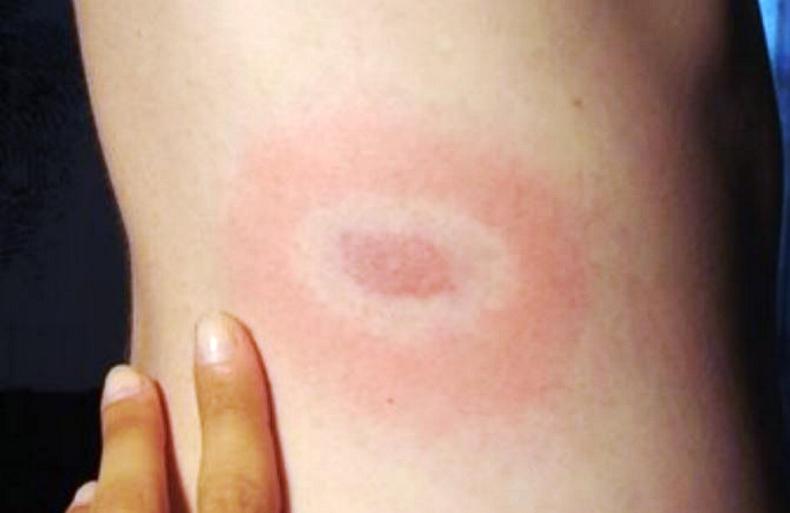Farmers and other people spending time outdoors this summer should protect themselves against tick bites, a doctor with the Health and Safety Executive (HSE)'s health protection surveillance centre advised on Lyme awareness day.
“Preventing Lyme disease means preventing tick bites," said Dr Paul McKeown.
"Anyone who spends time outdoors should protect themselves against tick bites," he added, "especially in grassy areas.”
Tips
Ticks can infect people with bacteria causing Lyme disease. The HSE has the following tips to avoid being bitten:
Wear long trousers, long-sleeved shirt and shoes.Wear a hat and tuck in hair.Use an insect repellent (preferably containing DEET).Check skin, hair and warm skin folds (especially the neck and scalp of children) for ticks after a day out.Check for ticks and remove any from your pets, clothing or outdoor gear.Remove any ticks and consulting with a GP if symptoms develop.“Most cases of Lyme disease are very mild and many infected people may not have symptoms.
"The most common sign of infection is a skin rash (known as bull's eye rash or erythema migrans).
"In a small number of cases however, the infection can be more severe, leading to serious nervous system, heart and joint disease,” said Dr McKeown.

A bull's eye rash can be a symptom of Lyme's disease. \HSE
If you find a tick biting your skin, you should remove it with a tweezers by gripping it close to the skin, making sure you remove any parts that might break off.
Wash the skin where the tick was found with soap and water and check the area over the next few weeks for swelling or redness.
Early stages of infection can be treated with antibiotics. The more serious cases can evolve into a disease of the nerves and brain called neuroborreliosis.
Between 10 and 20 such cases are notified in Ireland every year, but Dr McKeown said that at least 100 to 200 milder cases are likely to occur annually.
More information is available from the HSE's website.
Read more
Rally for Lyme disease
Spot the signs of Lyme disease
We must be tick aware - Lyme disease is on the rise
Farmers and other people spending time outdoors this summer should protect themselves against tick bites, a doctor with the Health and Safety Executive (HSE)'s health protection surveillance centre advised on Lyme awareness day.
“Preventing Lyme disease means preventing tick bites," said Dr Paul McKeown.
"Anyone who spends time outdoors should protect themselves against tick bites," he added, "especially in grassy areas.”
Tips
Ticks can infect people with bacteria causing Lyme disease. The HSE has the following tips to avoid being bitten:
Wear long trousers, long-sleeved shirt and shoes.Wear a hat and tuck in hair.Use an insect repellent (preferably containing DEET).Check skin, hair and warm skin folds (especially the neck and scalp of children) for ticks after a day out.Check for ticks and remove any from your pets, clothing or outdoor gear.Remove any ticks and consulting with a GP if symptoms develop.“Most cases of Lyme disease are very mild and many infected people may not have symptoms.
"The most common sign of infection is a skin rash (known as bull's eye rash or erythema migrans).
"In a small number of cases however, the infection can be more severe, leading to serious nervous system, heart and joint disease,” said Dr McKeown.

A bull's eye rash can be a symptom of Lyme's disease. \HSE
If you find a tick biting your skin, you should remove it with a tweezers by gripping it close to the skin, making sure you remove any parts that might break off.
Wash the skin where the tick was found with soap and water and check the area over the next few weeks for swelling or redness.
Early stages of infection can be treated with antibiotics. The more serious cases can evolve into a disease of the nerves and brain called neuroborreliosis.
Between 10 and 20 such cases are notified in Ireland every year, but Dr McKeown said that at least 100 to 200 milder cases are likely to occur annually.
More information is available from the HSE's website.
Read more
Rally for Lyme disease
Spot the signs of Lyme disease
We must be tick aware - Lyme disease is on the rise







 This is a subscriber-only article
This is a subscriber-only article










SHARING OPTIONS: